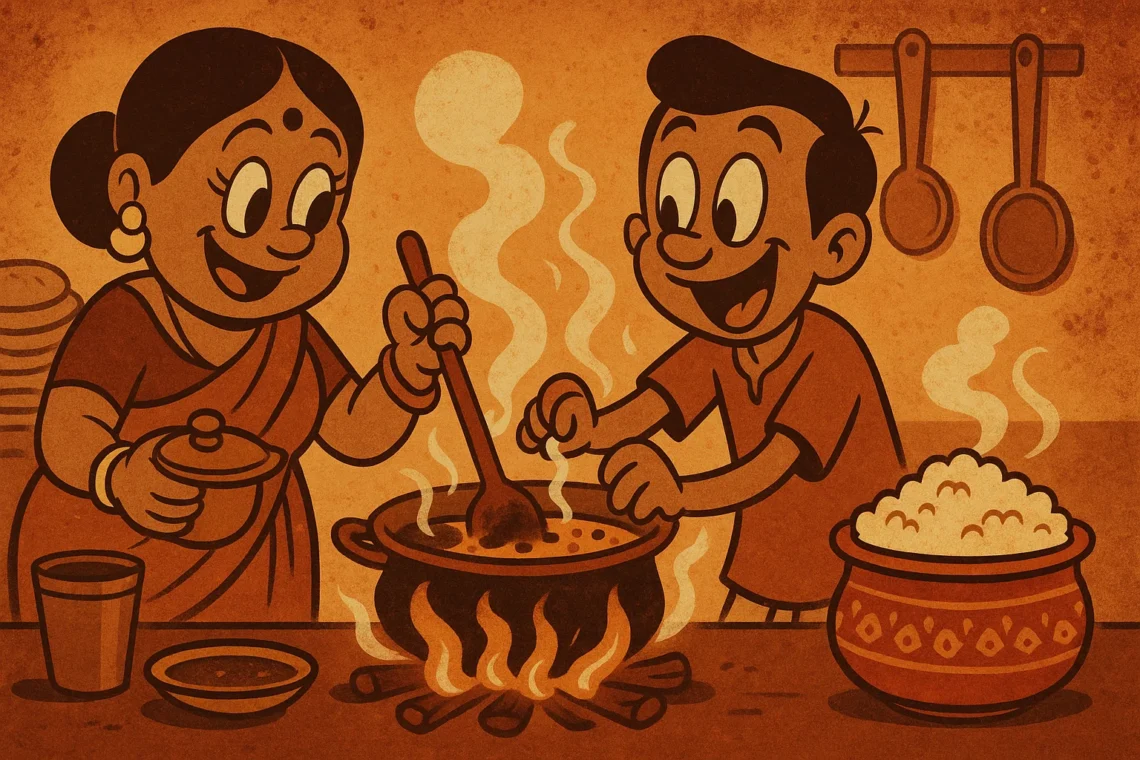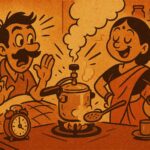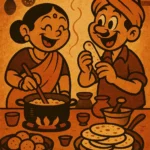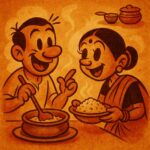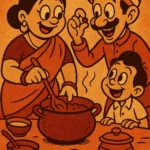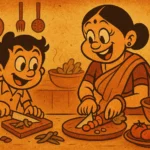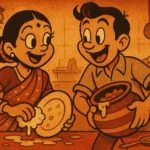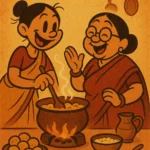The first time I burned dal, I wasn’t a child playing with pots or a teenager trying to help in the kitchen. I was an adult—new apartment, new stove, new sense of self-importance. I had called my mother for the recipe, listened with the casual confidence of someone who thinks boiling lentils is the same as boiling pasta. “Bas pressure cooker mein teen seeti,” she said. “Don’t forget to lower the flame.” I nodded, hung up, and promptly forgot both the instruction and the humility that should’ve come with it.
I was multitasking. Chopping onions, checking email, pretending to be the kind of person who casually makes home-cooked food after work. I didn’t smell anything at first. But then came the shift—the sharp, acrid whiff that signals something has moved from edible to irreversibly charred. I rushed to the kitchen, already too late. The whistle had whined too long. The bottom of the pressure cooker was black. The dal, when I opened it, looked like it had gone through a breakup.
The Sound of Culinary Failure
There’s a particular sound a burnt dal makes when you try to stir it—thick, reluctant, and vaguely insulting. The spoon scrapes across the bottom like it’s trying to escape. No amount of water or mashing helps. You taste it, just to be sure, and your tongue immediately regrets it. It’s bitter, smoky, and haunted by everything it could’ve been. You can’t even salvage it for paratha stuffing. It’s done. And so are you—for that evening, anyway.
I stood there, ladle in hand, equal parts angry and ashamed. It wasn’t just about the dal. It was about what it meant. That I still hadn’t mastered something so simple. That I’d failed at an act of everyday care. That I’d wasted something that always felt sacred at home—lentils simmered with patience, with the slow rhythm of a kitchen that didn’t hurry.
Calling for Help (Again)
When I called my mother again, she didn’t laugh. She didn’t scold. She just said, “Hota hai. Next time, smell the dal. Dal always tells you when it’s ready.” I didn’t understand then, but I do now. What she meant was: cooking isn’t just about instructions. It’s about attention. It’s about listening. And it’s about knowing when to stop, even if the recipe says ‘one more whistle.’
Later that night, I ordered takeout. Chinese, of course—the fallback cuisine of kitchen failures. I scrubbed the burnt pot under hot water and guilt, wondering how my mother made it look so effortless. The pressure cooker took two days to fully recover. My ego took a little longer.
What the Burn Left Behind
The smell lingered. Not terrible, but persistent. That burnt aroma clung to the corners of the kitchen, a quiet reminder of what happens when you treat something sacred like it’s just another task. But slowly, it became less of a sting and more of a lesson. A rite of passage. Because every cook has a burnt dal story. It’s part of the journey—like over-salted sabzi, exploded milk, or rotis that double as paperweights.
Now, years later, I still check the flame obsessively when making dal. I stay close. I watch the first boil rise. I turn down the gas before the third whistle. And I always, always listen. Because she was right—dal does tell you when it’s ready. You just have to be paying attention.
In the End, Not a Failure
That first burnt pot didn’t stop me. It made me slower. More patient. It reminded me that food carries mood, memory, and meaning. That you’re not just boiling lentils—you’re replicating warmth. You’re echoing the hands that stirred it before you. And sometimes, to get it right, you have to burn it first.
Now, when I taste my dal—soft, yellow, tempered with ghee and cumin—I still remember that first failure. And I smile. Because no matter how well I cook today, it all started with a blackened bottom and the scent of stubborn ambition.
Born in Mumbai, now stir-frying feelings in Texas. Writes about food, memory, and the messy magic in between — mostly to stay hungry, sometimes just to stay sane.

